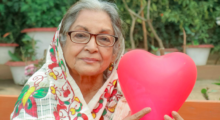
Credit: cmlwealth.com
In March, End of Life Choices New York approved an advance directive document allowing patients to record in advance that they wish to refuse food and drink in the event that they develop late-stage dementia. Rejecting food and drink is a way of accelerating the dying process once a person has been overcome with symptoms of severe dementia.
In the wake of the approval of the document by End of Life Choices New York, questions about the legality of the directive are coming up. There are eight U.S. jurisdictions that allow medical aid-in-dying, but dementia is not a condition covered by those laws. Supporters of the document say it’s an effective method, and the strongest effort there’s been to date to to give those who want to hasten the prolonged suffering of late-stage dementia the opportunity to make their wishes known before its too late.
Dr. Timothy Quill, palliative care specialist at the University of Rochester School of Medicine and longtime advocate of medical aid-in-dying, says, “Developing incapacitating dementia is certainly my and a lot of people’s worst nightmare. This is an aggressive document. It’s a way of addressing a real problem…the prospect of advanced dementia.”
Critics of the document say it needs a lot more debate and careful consideration before approval. Some perceive it as an effort to withdraw basic sustenance from a vulnerable population. Gayle Doll, director of the Center on Aging at Kansas State University, wrote “What we are saying in these directives is that while it gives us the autonomy we want now to end our lives on our own terms, it may not provide the flexibility to change if we change our minds.”

Credit: express.co.uk
The document offers patients two options. One option allows the provision of oral food and water if it appears that the patient is accepting it and enjoying it during the final stages of the disease. The second option calls for all assisted eating and drinking to cease, even if a patient seems to be willing to accepting the food and water. The End of Life Choices document stipulates that feeding options could only be instituted after a patient is diagnosed with moderate or severe dementia, defined as Stages 6 or 7 according to the Functional Assessment Staging Tool. Gayle Doll says defining the details of “late-stage” is critical. If “late-stage” is clearly defined as a point at which there is little to no quality of life, Doll says she “might be the first to sign up. …Few people know starvation and lack of fluids is not an unpleasant way to die.” She also advocates for more discussion, however, cautioning that “we should talk about it for a while before we jump into deep water.”
Thaddeus Pope, director of the the Health Law Institute at Hamline University in St. Paul, Minnesota, says that doctors can refuse to honor such directives, and many care facilities may not choose to cooperate with the directives in the document. Judith Schwarz, the clinical director at End of Life Choices New York, who drafted the document, says the document is “legally sturdy,” though she’s expecting it to end up in court. Thaddeus Pope says “Even solidly legal advance directives do not and cannot ENSURE that wishes are respected, they can only ‘help assure’ that.”

 New Advance Directive To Permit The Withholding of Food And Water In Late-Stage Dementia
New Advance Directive To Permit The Withholding of Food And Water In Late-Stage Dementia



 The Healing Sound of Singing Bowls
The Healing Sound of Singing Bowls
 “Summons” by Aurora Levins Morales
“Summons” by Aurora Levins Morales














